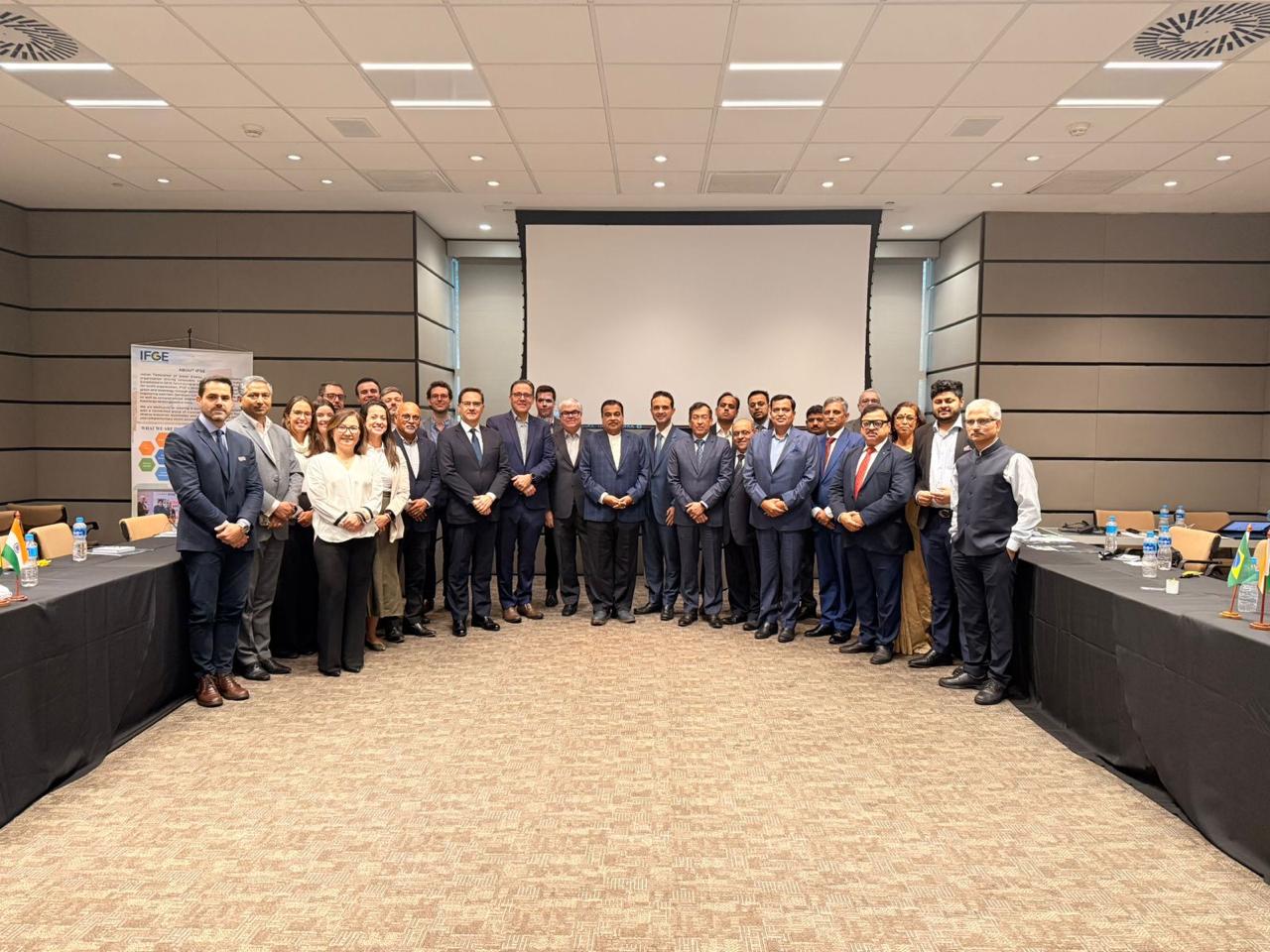
During his visit to Brazil, the Hon’ble Indian Minister of Road Transport and Highways, Mr. Nitin Gadkari, met with leaders from the sugarcane and bioenergy sectors on May 16 at an event hosted by the Brazilian Sugarcane and Bioenergy Industry Association (UNICA) at its headquarters in São Paulo.
The meeting was chaired by Luis Roberto Pogetti, a member of UNICA’s Board, and brought together representatives from partner companies such as Toyota do Brasil and John Deere, alongside Indian dignitaries including Consul General Hansraj Verma. The bioenergy landscape in India was presented by Vaibhav Dange, Founding Director of the Indian Green Energy Federation.
In addition, representatives from UNICA member companies shared their insights on the role of biofuels in promoting sustainable mobility.
In his address, Mr. Gadkari emphasized the importance of strengthening bilateral cooperation to advance sustainable energy solutions. For several years, Brazil and India have been exchanging knowledge on biofuels and building a close collaborative relationship, which has included diplomatic engagements, expert missions, and the establishment of a Center of Excellence for Ethanol. According to Mr. Gadkari, these efforts have positioned Brazil as a major source of inspiration for India’s ambitious ethanol program, which has increased ethanol blending in gasoline from just 1.4% in 2014 to 20% today.
“The main motivation for our ethanol program came from Brazil. Today, we already have 11 automakers ready to operate with flex-fuel engines. This path strengthens the rural economy, combats pollution and reduces our dependence on fossil fuels,” said the minister, underscoring the strategic importance of bioenergy in India’s environmental and economic policies.
UNICA President Evandro Gussi reinforced the relevance of the partnership between Brazil and India, especially in expanding the use of biofuels as a technological response to the climate emergency. “The collaboration between the two countries has inspired other nations – such as Japan, the Philippines, Indonesia, Malaysia and South Africa – to follow the same path,” he said.
International cooperation is essential to the decarbonization of global transport. According to estimates by the International Energy Agency, global bioenergy production will need to increase fourfold by 2035 to meet the rising demand for renewable energy sources. “We need a global ethanol and biomethane market that ensures energy security, political cooperation and low carbon intensity,” concluded Gussi.


